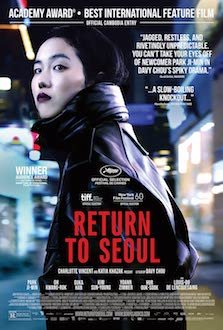Direction: Park Chan-wook
Country: South Korea
No Other Choice is a highly satirical dark-comedy thriller that never settles down. Directed, co-written, and produced by Park Chan-wook (Oldboy, 2003; The Handmaiden, 2016), who adapts Donald Westlake’s acclaimed novel The Ax (1997), the film bursts with offbeat overtones and biting irony as we follow the tortuous path of Yoo Man-su (Lee Byung-hun), an unemployed family man turned serial killer.
Man-su, a paper-industry expert who spent twenty-five years sacrificing himself for a Korean company, is abruptly fired after a buyout by a powerful American corporation. With his family in financial crisis, he is on the verge of losing his beloved childhood home and the comfort it has always provided. That’s when he comes up with a plan: eliminate the competitors for a job he has applied for at a rival firm. At once vulnerable, disturbing, and faintly ridiculous, this cold executioner ultimately carries out his strategy with the complicit help of his dental-assistant wife, Lee Mi-ri (Son Ye-jin).
Chan-wook’s fondness for dark stories—mixing the traits of film noir with a sharp critique of neoliberal modernity—is on full display, yet he never abandons the black humor, which spreads as contagiously as the madness itself. What he delivers is a perverse pressure cooker that serves up laughs and shrieks in equal measure. Initially unnerving in a slow-burn fashion and eventually catastrophically depraved, No Other Choice is potently harsh, unflinchingly amoral, and sinfully enjoyable. Pure noir zaniness.















































